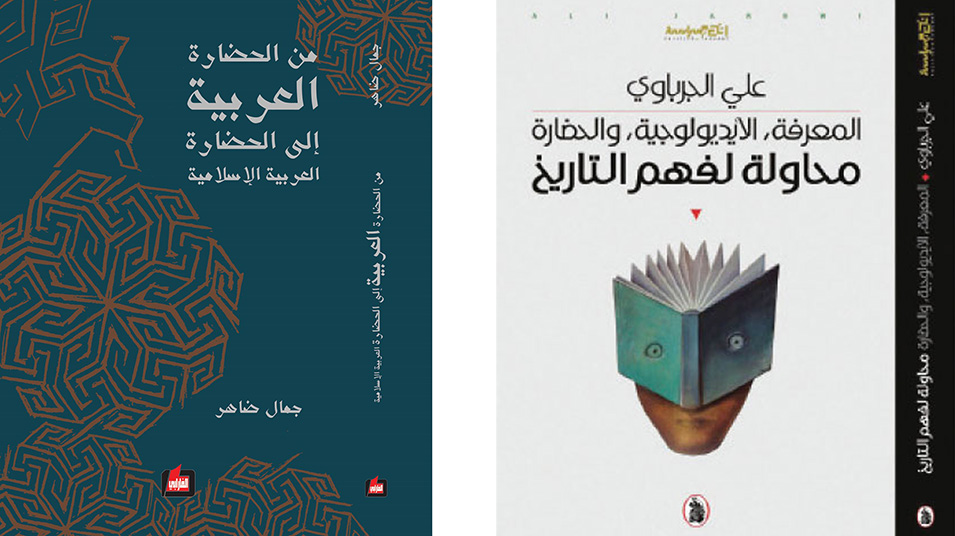University professors explore the interaction between history, civilization, and culture in latest book releases
Ali Jarbawi, a professor of political science and director of the Ibrahim Abu-Lughod Institute of International Studies, and Jamal Daher, an associate professor of philosophy and cultural studies, have recently released two books that revisit and chart the complex relationship between history and culture in the Arab world and beyond.
The first book, entitled “Knowledge, Ideology, and Civilization: An Attempt at Understanding History,” details Jarbawi’s view of the relationship between the production of knowledge across history and civilization. This relationship, he argues, is built on the dialectic interaction of humans with their surrounding environments and the construals of such an interaction — in other words, the historical knowledge produced regarding this interaction.
As Jarbawi notes, the relationship between knowledge and the focus of knowledge, in this case the interaction of humans with their immediate environments, creates civilizations that grow, mature, and, sometimes, expand to reach all corners of the globe. Such a process, the lifecycle of civilizations, is always ongoing, the author argues, and is one of the main features of human progress throughout history.
One of the main arguments proposed in Jarbawi’s book is that, by carefully charting how knowledge and human-environment interaction create civilizations, one could not only understand the past, but also chart a path for the future. Indeed, Jarbawi notes that reviewing the interweaved trajectory of human civilizations could present us with interesting indications on how phenomena and concepts that have marked the 21st century, such as globalization, could unfold in the future.
Jarbawi’s book, as such, presents readers with a unique theory that attempts to explain the relationship between knowledge production, history, and civilization and provides the tools not only to reconstruct the past, but also to envision the future.
While Jarbawi discusses history and civilization on a global scale, Daher delves into the culture, philosophy, and traditions of pre-Islamic Arab tribes, arguing that there is a proud intellectual tradition that existed before the emergence of Islam in the Arabian Peninsula and continued after it.
In his book, entitled “From the Arab Civilization to the Arab Islamic Civilization,” Daher stresses that pre-Islamic Arab tribes have a rich history of intellectual inquiry and achievement that rivaled, and even surpassed, that of other civilizations in the same era.
Arab intellectuals at that time, notes the author, were particularly interested in theological issues, such as fate, and early Muslim thinkers and theorists continued this scholarly tradition, albeit in different directions dictated by the historical and intellectual contexts of their era.
The book’s central claim, then, is that scholarship in the early Islamic civilization was not an isolated phenomenon that came with the emergence of Islam, but was a continuation of a centuries-long tradition in intellectualism.
These books by Jarbawi and Daher represent the latest scholarly achievements by Birzeit University researchers and professors, who continuously redefine and push the boundaries of understanding in diverse areas that range from history and culture to nuclear physics and internet and communications technologies. To view the latest research by the university’s faculty members, please follow this link to Fada, the institutional research repository.







